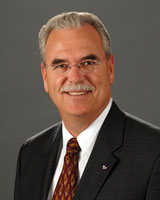
Most Hospitals Battling Drug Shortages: AHA
Most executives at 820 community hospitals said in a survey released July 12 that they are delaying treatment and experiencing higher costs because of the shortages.
The American Hospital Association has released a study showing that almost all surveyed community hospitals experienced at least one drug shortage in the past six months and are delaying treatments, treating patients with less effective drugs, or paying more for substitute drugs. The survey was faxed and e-mailed to hospital CEOs on June 1, and 820 submitted responses that were collected through June 22, AHA said.
The association's president and CEO, Rich Umbdenstock, released the results during a Capitol Hill news conference attended by Kasey Thompson, vice president of policy planning and communications at the American Society of Health-System Pharmacists, which completed its own survey recently and estimated U.S. hospitals are spending $216 million in labor costs to manage drug shortages. Also attending the news conference were U.S. Sen. Amy Klobuchar, D-Minn., and U.S. Reps. Tom Rooney, R-Fla., and Diana DeGette, D-Colo. They are sponsoring AHA-backed bills (S. 296 and H. 2245) that would give the U.S. Food and Drug Administration tools to manage drug shortages better and to prevent them in the future.
AHA said 99.5 percent of the responding hospital CEOs in the AHA survey said their facilities experienced a drug shortage in the past six months, and 44 percent had experienced 21 or more shortages. Eight in 10 hospitals reported delaying patient treatment, and seven in 10 reported they have treated patients with less effective drugs.
Surgery/anesthesia is the treatment category experiencing shortages to the greatest extent (95 percent), followed by emergency care (91 percent), cardiovascular (90 percent), and gastrointestinal/nutrition (89 percent), the survey shows. A majority (63 percent) of respondents said they never receive advance notice of drug shortages from manufacturers, wholesalers, distributors, group purchasing agents, or the FDA. Similarly, 51 percent said they rarely are informed about the expected duration of the shortage.
"The number of drugs in short supply is increasing at an alarming rate, and hospitals are working diligently to reduce the impact to the patients they care for," Umbdenstock said. "Clinicians need more notice about drug shortages so they have time to act to ensure that patient care is not disrupted."
According to AHA, there are about 2,800 urban hospitals, 1,300 critical access hospitals, and 1,000 other, rural hospitals nationwide.